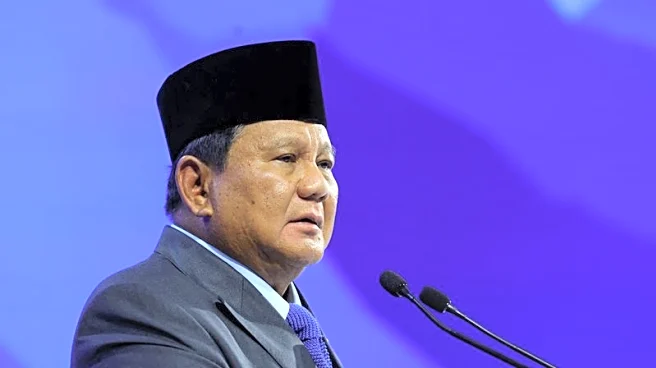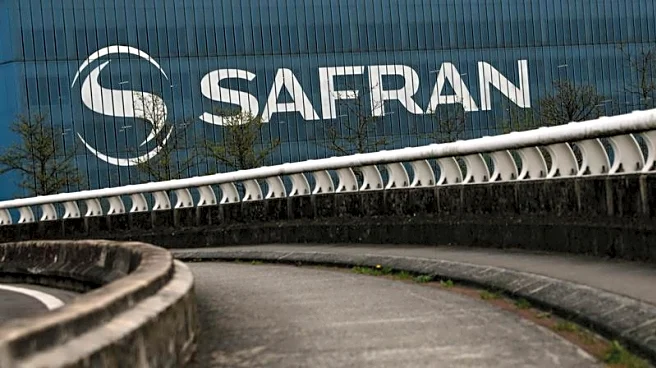What's Happening?
Recent court documents have unveiled deeper connections between Rep. Stacey Plaskett and Jeffrey Epstein than previously acknowledged. Plaskett, a non-voting delegate from the U.S. Virgin Islands, had
described Epstein as merely a 'constituent' while defending against a House resolution to censure her. However, evidence from a New York court case indicates that Epstein and his associates contributed at least $30,000 to Plaskett's campaign over several election cycles. Plaskett first met Epstein in 2014 during her initial congressional run, identifying him as a potential donor. The documents also reveal that Epstein assisted Plaskett during a 2019 congressional hearing, providing her with questions aimed at damaging President Trump's reputation. Despite these revelations, a resolution to censure Plaskett was narrowly defeated in the House.
Why It's Important?
The revelations about Plaskett's ties to Epstein are significant as they raise questions about the influence of convicted individuals on political figures and the integrity of campaign financing. Epstein's contributions to Plaskett's campaign and his involvement in congressional proceedings highlight potential ethical concerns and the need for transparency in political relationships. The case also underscores the ongoing scrutiny of Epstein's financial dealings and their impact on U.S. politics. The narrow defeat of the censure resolution suggests a divided opinion on accountability for political figures with controversial connections, which could influence future legislative actions and public trust in political institutions.
What's Next?
The fallout from these revelations may lead to increased pressure on Plaskett to address her connections with Epstein more transparently. Senate Democratic investigators are already examining Epstein's financial transactions, and House Republicans are urging the Virgin Islands government to disclose more information about its interactions with Epstein. These investigations could result in further legal and political consequences for Plaskett and other involved parties. Additionally, the settlement between JP Morgan Chase and the USVI, which includes funds to combat human trafficking, may prompt further scrutiny of financial institutions' roles in facilitating Epstein's activities.
Beyond the Headlines
The deeper implications of Plaskett's ties to Epstein extend to broader discussions about campaign finance reform and the ethical responsibilities of political figures. The case highlights the potential for wealthy individuals to exert influence over political processes through financial contributions, raising questions about the need for stricter regulations and oversight. Furthermore, the involvement of Epstein in congressional matters points to the challenges of maintaining integrity and accountability in political dealings, especially when controversial figures are involved. These issues may drive future legislative efforts to enhance transparency and ethical standards in politics.









